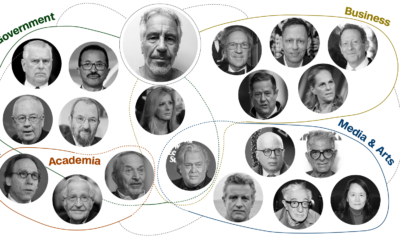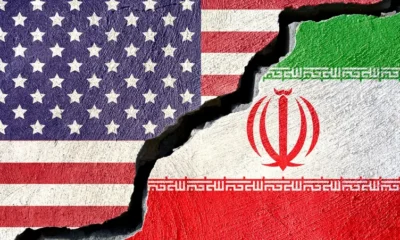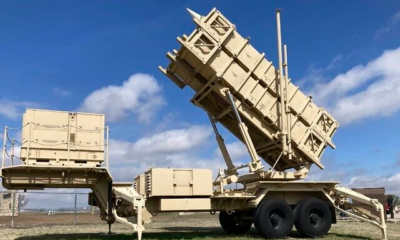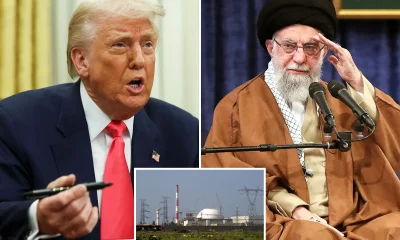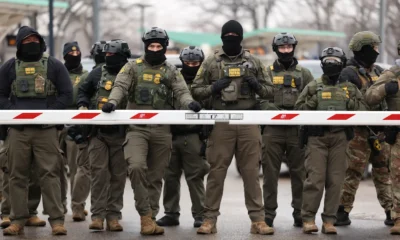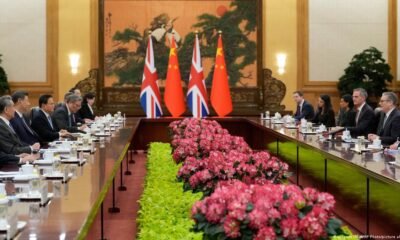Sanctions
Gen Muhoozi Lashes at US Envoy After Uganda Police Chiefs Sanctioned

Muhoozi’s Ultimatum: Uganda’s General Fires at US Ambassador Amid Sanctions Controversy
In a fiery tirade on X (formerly Twitter), Uganda’s Chief of Defence Forces, Gen. Muhoozi Kainerugaba, son of President Yoweri Museveni, accused the US ambassador, William W. Popp, of undermining the Ugandan government. Muhoozi threatened a diplomatic showdown unless Popp apologizes for “disrespecting” the president. This explosive confrontation is likely tied to recent US sanctions on four Ugandan police officials over human rights violations—a move that has escalated tensions and sparked fears of a diplomatic rift.
Muhoozi didn’t mince words. “We love the USA, but if this ambassador doesn’t personally apologize to Mzee [President Museveni], we’ll demand he leaves Uganda.” His ultimatum comes just days after the US imposed travel bans on several high-ranking Ugandan police officials for alleged human rights abuses, including torture. While Popp has yet to respond, the State Department reiterated its commitment to justice for human rights victims globally.
The crux of this feud appears to be the US sanctions targeting Ugandan police, a sore point for Muhoozi, whose close ally, Elly Womanya, is among those affected. These sanctions, which have intensified following the UK’s similar actions, have drawn ire from Ugandan officials who decry them as bullying tactics. While Uganda’s Ministry of Foreign Affairs scrambles for a diplomatic solution, the clock ticks ominously towards Muhoozi’s Monday deadline.
Uganda’s history with US sanctions is littered with frustration. From top-ranking military generals to the speaker of parliament, high-profile Ugandans have been targeted in recent years. Yet, this latest standoff feels personal. It raises questions about Uganda’s human rights record and Washington’s increasingly assertive stance. What is at stake here is more than just diplomatic protocol. Could Muhoozi’s ultimatum signal a broader pushback against Western influence in Uganda? And will the US stand firm, even at the risk of diplomatic fallout with a key African ally?
This incident lays bare the tensions simmering beneath Uganda-US relations. A fight over sanctions has morphed into a political spectacle, with one of Uganda’s most powerful figures drawing a line in the sand. Whether Muhoozi’s bold stance strengthens Uganda’s sovereignty or isolates it further on the world stage remains to be seen.

BRICS
Unlocking Somaliland: A New Dawn for Investment and Opportunity
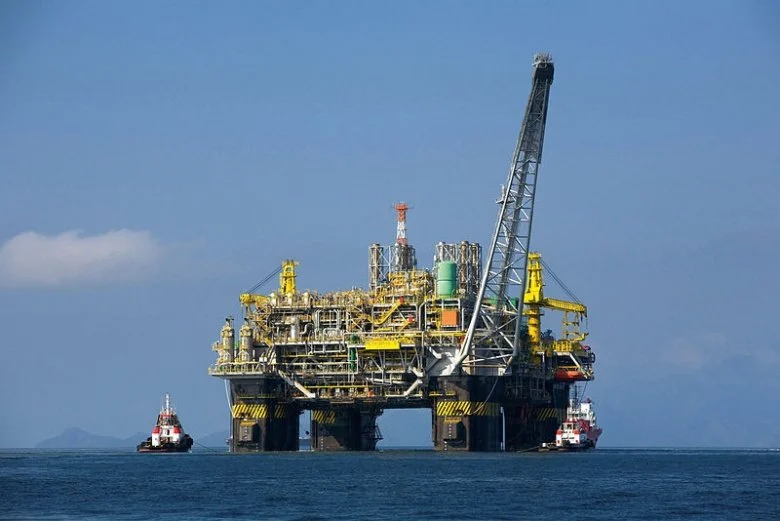
Somaliland is emerging as a beacon of potential, rich in untapped resources and poised for a transformative future. With its strategic location, stable governance, and a wealth of natural assets, this region is quickly becoming an attractive destination for foreign investors. As President Abdirahman Mohamed Abdullahi Irro leads the charge for Somaliland’s recognition on the global stage, the time is ripe for international investors, particularly from dynamic economies like USA, to engage with this promising territory.
Somaliland’s landscape is dotted with significant reserves of oil and various minerals, including gypsum, limestone, salt, and iron ore. The promise of these natural resources presents a unique opportunity to catalyze economic growth and job creation. By investing in sustainable extraction technologies, foreign investors can not only harness these resources but also contribute to the development of local economies, laying the groundwork for a prosperous future.
Situated along the Gulf of Aden, Somaliland enjoys a prime geographic advantage, serving as a natural hub for trade that connects Africa with the Middle East and beyond. This strategic position makes it an ideal location for logistics and commerce, further enhancing its appeal to potential investors. Coupled with a youthful population eager to adapt and innovate, Somaliland offers a workforce that is primed to meet the demands of various sectors, including technology and agriculture.
To effectively attract foreign investment, Somaliland must embrace the power of storytelling—crafting a narrative that resonates with prospective investors. This story should highlight the region’s vision for growth, showcasing local entrepreneurs who have thrived against all odds. By sharing these success stories, Somaliland can illustrate its resilience and potential, inviting investors to join in its journey.
The cultural richness of Somaliland is another key facet of this narrative. The warmth and hospitality of its people are a vital part of the experience, making the region an inviting place for businesses to establish roots and foster meaningful connections. As Somaliland strives for international recognition, it is crucial to underline the political stability and governance structures that have allowed it to maintain peace and security, making it a more attractive locale for investment.
To further bolster interest from global investors, Somaliland could benefit from the establishment of a dedicated investment promotion agency—a one-stop shop to provide tailored support and information about investment opportunities. This initiative could include the development of a robust digital presence through social media and targeted outreach, ensuring the narrative of Somaliland’s potential reaches audiences far and wide.
Hosting international investment forums presents another avenue for engagement, inviting business leaders from around the world, especially from tech sector, to explore opportunities firsthand. Networking events can facilitate connections that ignite collaborations and encourage dialogue about Somaliland’s investment potential.
In particular, the tech industry stands poised to thrive in Somaliland. Companies in fields like agritech, health tech, and fintech can find fertile ground for innovation and growth. By providing customized incentives, such as tax breaks and partnership models with local businesses, Somaliland can create an inviting atmosphere for investment.
A collaboration with international organizations can further lend credibility to Somaliland’s efforts. Partnerships with influential entities such as the World Bank or the African Development Bank can enhance visibility and provide a sense of security for potential investors, showcasing a commitment to sustainable practices and innovation.
At its core, the story of Somaliland is one of resilience and opportunity. As President Irro’s government embarks on this new chapter, global investors—especially those from UK, and EU—are invited to discover the vast resources and investment opportunities that await. This is more than just a financial decision; it is a chance to forge connections with a community eager for growth, innovation, and partnership.
As the world turns its gaze toward Somaliland, join in unlocking the full potential of this extraordinary region. Together, investors and Somaliland can build a promising future, establish a unique narrative of success, and elevate Somaliland on the global stage as a vibrant hub for investment and development. Now is the time to be part of this transformative journey.
-

 Analysis11 months ago
Analysis11 months agoSaudi Arabia’s Billion-Dollar Bid for Eritrea’s Assab Port
-

 Interagency Assessment2 months ago
Interagency Assessment2 months agoTOP SECRET SHIFT: U.S. MILITARY ORDERED INTO SOMALILAND BY LAW
-
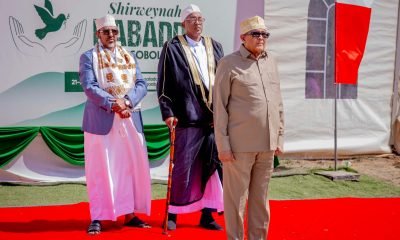
 Somaliland3 months ago
Somaliland3 months agoSomaliland Recognition: US, UK, Israel, and Gulf Bloc Poised for Historic Shift
-

 EDITORIAL1 year ago
EDITORIAL1 year agoDr. Edna Adan Champions the Evolving Partnership Between Somaliland and Ethiopia
-
Top stories2 years ago
Ireland, Norway and Spain to recognize Palestinian state
-

 Russia-Ukraine War6 months ago
Russia-Ukraine War6 months agoFibre-Optic Drones Shift Ukraine’s Drone Warfare
-

 ASSESSMENTS10 months ago
ASSESSMENTS10 months agoOperation Geel Exposes the Truth: International Community’s Reluctance to Embrace Somaliland as a Strategic Ally
-
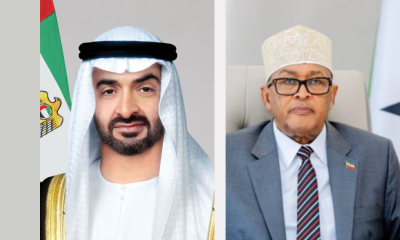
 Somaliland1 year ago
Somaliland1 year agoSomaliland and UAE Elevate Ties to Comprehensive Strategic Partnership

